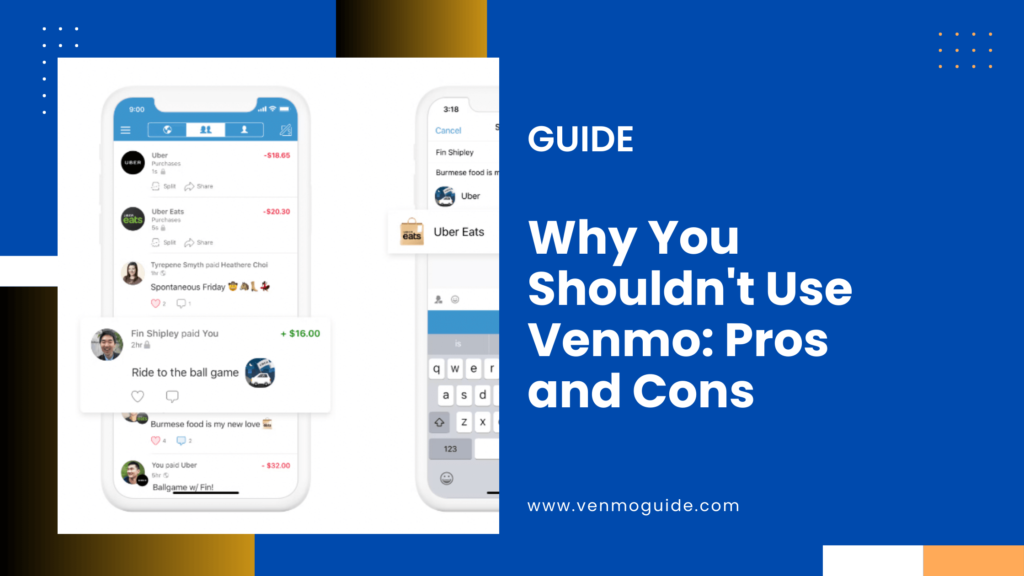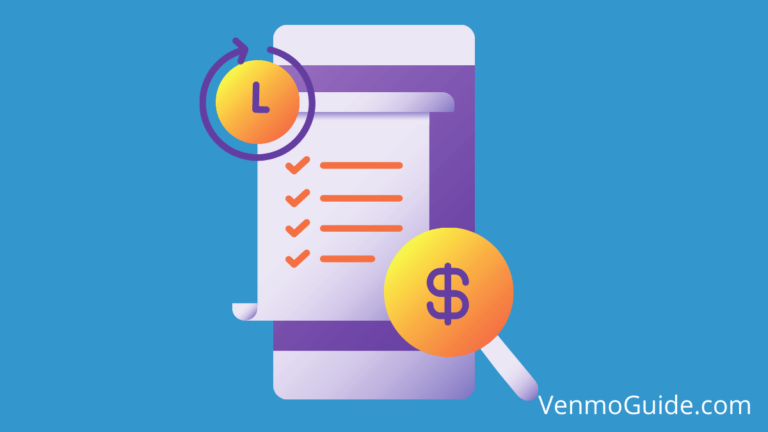Why You Shouldn’t Use Venmo?
You shouldn’t use Venmo for certain transactions due to the following reasons:
- Limited Purchase Protection: Venmo offers little protection for buyers, making it risky for purchases from strangers.
- Privacy Concerns: Transactions are public by default, potentially compromising your privacy.
- Security Risks: Although Venmo uses encryption, account hacks can still happen, especially if you have weak passwords.
- Unauthorized Business Use: Venmo is designed for personal use; using it for business without proper authorization may violate its terms.
- Potential Fees: Fees can apply for instant transfers or credit card payments, increasing costs.

Pros and Cons of Using Venmo
Venmo is popular for its convenience, but it’s important to consider both its benefits and potential risks. Here, you’ll find specific points to help you evaluate whether Venmo fits your needs.
Advantages of Venmo
Venmo offers several advantages that make it appealing for users:
Quick Transactions: You can send and receive money almost instantly. This is great for splitting bills or paying friends.
Low Fees: Sending money from your linked bank account or debit card is usually free. There is a small fee for using a credit card, making it economical for most transactions.
Bonus Features: Venmo supports a social feed where you can see transactions between friends. It also offers a Venmo debit card for purchases and a credit card with cash back rewards.
Easy Mobile Access: Venmo has a user-friendly app, making it simple to use on the go. You can pay businesses that accept Venmo, extending your payment options.
Security Measures: Venmo employs two-factor authentication, adding a layer of security for your account
Potential Drawbacks and Risks
While Venmo has benefits, it also comes with some risks you should be aware of:
Privacy Concerns: Transactions are public by default, which may expose your spending habits. You can change your privacy settings, but it’s crucial to be aware of this.
Scams: Venmo is a target for scammers. Since transactions are often irreversible, ensure you only send money to people you trust.
Limited Buyer Protection: If you are buying goods or services, Venmo may not offer sufficient buyer protection. This can be problematic in disputes.
Linked Bank Account Risks: By linking your bank account, you increase the risk if your Venmo account is hacked.
Receiving Payments: If you receive funds for business transactions, you might face selling transaction fees. Make sure to check those before using it for business purposes.
How Venmo Works
Venmo is a popular mobile payment app that allows users to send and receive money quickly. It offers features that make it easy to split bills among friends or pay for services.
Here are two important aspects of Venmo to consider.
Key Features of Venmo
Venmo makes peer-to-peer payments simple. Some key features include:
- Instant Transfers: You can send or request money in seconds using just an email or phone number.
- Social Feed: Venmo offers a unique social aspect where you can see transactions made by friends, although amounts remain private.
- Payment Options: You can link a bank account, debit, or credit card. Bank account and debit card transfers are typically free; credit card payments incur a fee.
With Venmo, you can use your balance to pay at select businesses or withdraw cash using a Venmo debit card. It’s available on both iOS and Android devices, making it accessible to a large number of users.
Comparing Venmo to Other Payment Applications
Venmo stands out among various mobile payment apps. Here’s how it compares to a few others:
- PayPal: While both apps are operated by PayPal Holdings, Venmo is designed for social payments, focusing on personal transactions. PayPal supports a wider range of services, including online shopping.
- Cash App: Similar in function, Cash App also allows for direct deposit and buying Bitcoin, features that Venmo does not offer. Cash App has fewer social features compared to Venmo’s feed.
- Zelle: Unlike Venmo, Zelle transfers money directly from bank accounts, making it faster but less user-friendly for splitting bills.
Using these apps can depend on your needs, whether it’s for business transactions, purchasing, or sending money to friends.
Making Informed Decisions on Payment Methods
Choosing the right payment method is crucial for both personal and business transactions. Consider factors like security, fees, and ease of use to find the best option for your needs.
Evaluating Online Payment Systems
When looking at payment apps, you should assess how they align with your needs. Venmo, for instance, is well-known for peer-to-peer transactions but may not be suitable for businesses.
Here are some key considerations:
- Security: Check if the app offers features like two-factor authentication and PIN protection to safeguard your account.
- Fees: Some apps charge fees for transactions. For example, instant transfers with Venmo come with a 1.75% fee.
- Privacy: Evaluate how the app handles personal data and if your transactions remain confidential.
- Refund Policies: Understand how refunds work. Some platforms lack clear refund processes, which can be risky.
Compare options like Cash App and traditional banks for security and services. Researching will help you choose wisely.
Best Practices for Digital Transactions
There are several best practices you should follow for safe online payments.
- Use Strong Passwords: Choose unique passwords and change them regularly to protect your account.
- Watch for Scams: Be cautious of unsolicited requests for payments. Scammers often use apps like Venmo.
- Enable Notifications: Set up alerts for transactions. This helps you monitor any unauthorized activities.
- Verify Transactions: Always double-check that you are sending money to the correct person before confirming a payment.
- Consider Using Credit Cards: When possible, use credit cards for added protection against fraud and to earn cash back rewards.






